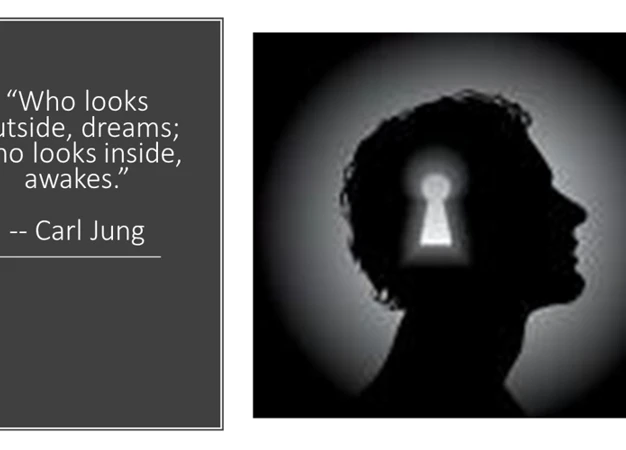Fear can be a powerful and overwhelming emotion that affects us in various ways. It can manifest in our nightmares, tapping into the depths of our subconscious mind. Nightmares often leave us feeling perplexed, wondering about their meaning and significance. In this article, we will delve into the intricate role of fear in nightmares and the subconscious mind, exploring the nature of fear as a basic emotion and its evolutionary purpose. We will also discuss the purpose of nightmares, how fear manifests in the subconscious mind, and the ways in which we can interpret and overcome fear in our dreams. Join us on this fascinating journey into the depths of our psyche, as we seek to understand the complex relationship between fear, nightmares, and the subconscious mind.
The Nature of Fear

Fear is an intricate and multifaceted emotion that is deeply ingrained in our human experience. It serves as a primal instinct, triggering a wide range of physiological and psychological responses. When confronted with fear, our heart rate quickens, our muscles tense, and our senses become heightened. This heightened state of alertness is designed to prepare our bodies for a potential threat or danger. From an evolutionary perspective, fear has played a crucial role in our survival by keeping us vigilant in the face of potential harm. Understanding the nature of fear is essential in comprehending its profound impact on our nightmares and the subsequent influence it exerts on our subconscious mind. To explore the depth of fear in nightmares, we must decipher the symbolic representations of falling, the symbolism of monsters and villains, and delve into the realms of recurring nightmares. By understanding the complex nature of fear, we can begin to unravel the mysteries that lie within our subconscious minds.
1. Fear as a Basic Emotion
Fear, as a basic emotion, is a fundamental aspect of the human experience. It is a primal response that arises when we perceive a threat or danger, activating our body’s fight-or-flight response. This automatic reaction occurs in the amygdala, a small almond-shaped structure in the brain responsible for processing emotions, particularly fear. When we encounter a situation that triggers fear, the amygdala signals the release of stress hormones like adrenaline and cortisol, preparing our body to defend itself or flee from the perceived threat. Fear can be triggered by various stimuli, ranging from physical dangers to abstract concepts such as rejection or failure. It is a universal emotion that transcends cultural boundaries and is deeply ingrained in our evolutionary history. By understanding fear as a basic emotion, we can recognize its power and influence on our thoughts, behaviors, and even dreams. Fear in nightmares often manifests as symbolisms such as falling, monsters, and villains, exploring the depths of our primal instincts and fears.
2. The Evolutionary Purpose of Fear
The Evolutionary Purpose of Fear: Fear, as a fundamental emotion, has evolved over time to fulfill a crucial purpose in human survival. It is rooted in our primal instincts and has been essential in protecting us from potential dangers and threats. Throughout human history, individuals who were more alert and cautious in the face of danger were more likely to survive and pass on their genes. Fear triggers a cascade of physiological responses, such as increased heart rate, heightened senses, and the release of stress hormones, preparing our bodies to either confront or flee from perceived threats.
One aspect of the evolutionary purpose of fear is its role in promoting self-preservation. When faced with a threat or danger, fear activates the fight-or-flight response. This instinctual response enables us to assess the situation quickly and either confront the threat head-on or retreat to ensure personal safety. For example, if confronted by a predator in the wild, fear triggers an immediate response to either fight back or flee to protect oneself. This evolutionary response has allowed our ancestors to survive in hostile environments and is deeply ingrained in our genetic makeup.
Fear serves as a mechanism for learning and adaptation. Through the experience of fear, we acquire knowledge about potential risks and dangers in our environment. This knowledge can be passed down through generations, ensuring the survival and well-being of future individuals. Fear acts as a motivator for seeking out safety and avoiding potentially harmful situations. It sharpens our senses, enhances our awareness, and encourages us to make informed decisions to minimize risk.
The evolutionary purpose of fear lies in its ability to protect and preserve human life. It activates the fight-or-flight response, allowing individuals to respond to threats effectively. Additionally, fear facilitates learning and adaptation by instilling a sense of caution and motivating individuals to avoid potential dangers. By understanding the evolutionary significance of fear, we can gain insights into its role in nightmares and the subconscious mind, aiding in our journey towards interpreting and overcoming fear in our dreams.
The Purpose of Nightmares

Nightmares, despite their unsettling nature, serve a purpose in our lives, extending beyond mere nocturnal disturbances. One of the primary purposes of nightmares is the processing of emotional experiences. When we encounter challenging or distressing situations during the day, our subconscious mind uses nightmares as a way to replay these experiences, allowing us to process and understand our emotions on a deeper level. This processing mechanism helps us make sense of our fears, anxieties, and traumas, enabling us to gradually heal and move forward. Additionally, nightmares also play a role in preparation and learning. They allow us to rehearse potential threatening scenarios, helping us develop adaptive coping mechanisms and strategies. By exploring the symbolism of falling, the symbolism of monsters and villains, and delving into the realms of recurring nightmares, we can gain valuable insights into the purpose nightmares serve in our lives. Through these experiences, our subconscious mind guides us toward personal growth and resilience.
1. Processing Emotional Experiences
Processing emotional experiences is a fundamental purpose of nightmares. Within the realm of dreams, our subconscious mind utilizes fear as a mechanism to process and understand the complex emotions we encounter in our waking lives. When we experience intense emotions such as fear, anxiety, or sadness, our subconscious mind often struggles to fully process and integrate these feelings. Nightmares provide an opportunity for our subconscious mind to confront and work through these emotional experiences in a safe and symbolic way. By immersing ourselves in vivid and sometimes terrifying dream scenarios, we can explore and confront the deep-rooted fears or unresolved traumas that may be causing emotional distress. These nightmares act as a psychological outlet for our subconscious to release and examine these emotions from a detached perspective, allowing for potential healing and resolution. By decrypting the symbolism and meaning behind the various elements and scenarios in these nightmares, we can gain valuable insights into our emotional state and embark on a journey of self-discovery and growth. To explore the symbolic representations of fear in nightmares, further understanding the symbolism of monsters and villains can shed light on our hidden fears and archetypal representations. By unraveling the symbolism of falling in nightmares, we can uncover our fears of losing control or feeling helpless. Similarly, exploring recurring nightmares can provide us with valuable clues about unresolved emotional experiences that we need to address. The processing of emotional experiences is a vital aspect of nightmares, driving us towards self-reflection and emotional growth.
2. Preparation and Learning
Preparation and learning are two key purposes of nightmares in relation to fear. Nightmares provide a simulated environment in which individuals can confront and experience fear in a relatively safe way. They act as a form of preparation, allowing individuals to rehearse responses to potential threats or dangerous situations. Through these vivid and intense experiences, the mind can learn and adapt to better cope with fear-inducing scenarios in real life. During nightmares, the brain actively processes and consolidates emotional experiences, helping individuals process and make sense of their fears. This process aids in emotional regulation and can contribute to personal growth and resilience. Nightmares can also serve as a teaching mechanism, as they may highlight areas of vulnerability or areas in need of personal growth. By confronting fears and exploring them within the realm of dreams, individuals can gain insights and learn valuable lessons that can be applied to various aspects of their waking lives. So, while nightmares may be unsettling, they play a crucial role in preparing individuals and facilitating their learning and personal development. To further explore the symbolism and meaning behind nightmares associated with falling, please refer to our article on the symbolism of falling in nightmares.
Fear in the Subconscious Mind

The subconscious mind is a vast landscape where our deepest fears reside, often hidden from our conscious awareness. Deep-rooted fears can stem from childhood experiences, traumas, or even primal instincts. These hidden fears can manifest in our nightmares, serving as a vehicle for our subconscious to bring them to the forefront of our consciousness. Additionally, the subconscious mind is capable of repressing memories that we may find too overwhelming or painful to confront, burying them deep within our psyche. These repressed memories can resurface in our nightmares, offering us glimpses into unresolved emotions and experiences. Our subconscious mind can be influenced by unconscious conditioning, absorbing fears and anxieties from our environment without our conscious recognition. Understanding the role of fear in the subconscious mind is crucial in deciphering the complex symbolism and messages behind our nightmares, ultimately leading to a deeper understanding of ourselves and our fears.
1. Deep-rooted Fears
Deep-rooted fears are the underlying anxieties and phobias that are deeply embedded within our subconscious mind. These fears often stem from early childhood experiences, traumas, or negative events that have left a lasting impression on our psyche. They can manifest in nightmares as recurring themes or situations that elicit intense fear and distress. Common deep-rooted fears include fear of abandonment, fear of failure, fear of rejection, fear of intimacy, and fear of death. These fears may have originated from past experiences where we felt vulnerable, helpless, or threatened. Deep-rooted fears can also be influenced by cultural, societal, or familial conditioning. For example, if we grew up in an environment where certain fears were instilled in us, such as the fear of spiders or heights, these fears may continue to haunt us in our nightmares. It is important to acknowledge and understand these deep-rooted fears, as they can continue to impact our daily lives and contribute to the content of our nightmares. By recognizing and addressing these fears, we can begin to unravel their grip on our subconscious mind and work towards overcoming them.
2. Repressed Memories
Repressed memories are an intriguing aspect of the subconscious mind and play a significant role in the manifestation of fear in nightmares. These memories are experiences or traumas that have been buried deep within our subconscious due to their painful or distressing nature. Often, we are unaware of these memories consciously, but they can resurface through dreams and nightmares as a means of processing and confronting unresolved emotions or events. The fear that arises from repressed memories in nightmares can be intense and vivid, as the subconscious mind uses these dreams as a way to bring unresolved issues to the forefront of our awareness. When these repressed memories come to light, it allows us the opportunity to acknowledge and work through the associated fears, ultimately leading to healing and growth. It is important to note that while nightmares can be distressing when they involve repressed memories, they can also serve as a catalyst for self-discovery and transformation. Exploring these buried memories with the help of dream analysis or therapy can be a powerful tool in unraveling the roots of our fears and finding resolution. By confronting repressed memories and the fears they hold, we can begin to rewrite our narratives and reclaim control over our subconscious minds.
3. Unconscious Conditioning
Unconscious conditioning plays a significant role in the formation and manifestation of fear in our nightmares and subconscious mind. It involves the process of learning and association that occurs outside of our conscious awareness. Through repeated exposure to certain stimuli or experiences, our minds create connections between these triggers and the emotions associated with them. This conditioning can be both positive and negative, and it greatly influences the way fear manifests in our dreams. For example, if we have experienced a traumatic event in the past, our subconscious mind may associate certain elements or symbols with that fear, leading to recurring nightmares or an increased likelihood of experiencing fear-related dreams. Unconscious conditioning can also occur through external factors such as media, cultural influences, or personal experiences. These associations can be so deeply ingrained in our subconscious that they continue to impact our dreams and emotional responses long after the initial conditioning took place. By understanding the role of unconscious conditioning, we can gain insight into the root causes of our fears and work towards resolving them in order to attain a sense of peace and equilibrium within our subconscious mind.
Interpreting Fear in Dreams

Interpreting the presence of fear in dreams is a fascinating and intricate process. Dreams are often filled with symbolic representations that reflect our deepest fears and anxieties. These symbols can take on a myriad of forms, each carrying its own unique meaning. For example, falling in a dream may symbolize a loss of control or a fear of failure. Monsters and villains may represent our internal conflicts or external threats that we feel powerless against. It is important to remember that the interpretation of fear in dreams is highly personalized and subjective. While some symbols may have universally recognized meanings, the significance of fear in dreams often depends on the individual’s personal experiences and emotions. Exploring the symbolism and personal meanings behind fear in dreams can provide valuable insights into our subconscious mind and help us navigate through our fears in waking life. By unraveling the enigmatic nature of fear in dreams, we can gain a deeper understanding of ourselves and the fears that shape our existence.
1. Symbolic Representations
In the realm of dreams, fear often manifests itself through symbolic representations. These symbols can take various forms and hold personal significance to the dreamer. For example, falling in a dream may represent a loss of control or a sense of insecurity in waking life. This symbolism can vary depending on cultural, personal, and contextual factors. Similarly, encountering monsters or villains in nightmares can symbolize unresolved fears, conflicts, or challenges that we face in our daily lives. It is important to recognize that the interpretation of these symbols is highly individualized, and what holds meaning for one person may not hold the same significance for another. Understanding the symbolism in our dreams requires introspection and an exploration of our own unique experiences, emotions, and associations. By delving into the symbolic representations in our nightmares, we can gain deeper insights into our fears and uncover hidden aspects of ourselves. This process can be enlightening and transformative, as it allows us to confront and process our fears in a safe and symbolic realm. By decoding the symbolic language of our dreams, we can unlock the messages hidden within our subconscious mind, leading to personal growth and self-discovery.
2. Personalized Meanings
In the realm of dreams, fear takes on a deeply personalized aspect, with each individual having their own unique set of fears and anxieties. When it comes to interpreting fear in dreams, personalized meanings play a significant role. The symbolism and manifestations of fear can vary greatly from person to person, as our subconscious mind draws upon our personal experiences, traumas, and aspirations. For example, one person may have a recurring nightmare about being chased, which reflects their fear of failure or feeling pursued by unresolved issues. Another individual may experience nightmares involving the loss of loved ones, mirroring their deepest emotional attachments and fears of separation. These personalized meanings provide valuable insights into our innermost fears and desires, offering us an opportunity to confront and understand them on a deeper level. To unravel the personalized meanings behind our fears in dreams, it is crucial to engage in self-reflection and explore the connections between our waking life experiences and the symbols and scenarios that appear in our nightmares. By untangling these personalized meanings, we gain a better understanding of ourselves and can work towards resolving lingering fears and anxieties that may be holding us back in our waking lives.
Overcoming Fear in Nightmares
Overcoming fear in nightmares requires a proactive and multidimensional approach, drawing upon various techniques and strategies. One effective method is through the practice of lucid dreaming, where the dreamer becomes aware that they are dreaming and can actively influence the dream’s outcome. By harnessing this state of consciousness, individuals can confront their fears head-on and take control of the dream narrative. Another valuable approach is through dream analysis and therapy, which aims to uncover the underlying meanings and emotions behind the nightmares. This process involves exploring the symbolism and personal associations embedded within the dream content. Through self-reflection and professional guidance, individuals can gain insights into their fears and work towards resolving underlying psychological issues. It may also be beneficial to make use of relaxation techniques, such as deep breathing exercises or meditation, to alleviate anxiety and promote a sense of calm before and after experiencing a nightmare. By addressing and understanding our fears, we empower ourselves to shape the narrative of our dreams and ultimately overcome fear’s grip on our subconscious mind.
1. Lucid Dreaming Techniques
Lucid dreaming techniques offer a fascinating approach to overcoming fear in nightmares by allowing individuals to become aware that they are dreaming while still in the dream state. This awareness gives individuals the ability to actively participate in and manipulate their dreams, providing a unique opportunity to confront and conquer their fears. One effective technique is reality testing, where individuals regularly question their reality throughout the day, creating a habit that extends into their dreams. By questioning their surroundings and looking for inconsistencies, individuals can trigger lucidity in their dreams. Another technique is setting intentions before sleep, where individuals mentally prepare themselves to recognize and engage in lucid dreams. This can be done through affirmations or visualization exercises that focus on confronting and overcoming specific fears. Additionally, keeping a dream journal can help individuals identify common dream themes and patterns, providing insights into recurring fears that can be addressed during lucid dreaming. With practice and perseverance, lucid dreaming techniques can empower individuals to face their fears head-on, transforming nightmares into opportunities for growth, healing, and self-discovery.
2. Dream Analysis and Therapy
Dream analysis and therapy are powerful tools that can aid in overcoming fear in nightmares. At its core, dream analysis involves the interpretation of symbols, themes, and emotions present in our dreams. By closely examining these elements, we can gain valuable insights into our subconscious mind and the underlying fears that manifest in our nightmares. Therapists who specialize in dream analysis can guide individuals through the process of exploring their dreams, helping them uncover the hidden meanings and messages behind their fears. They provide a safe and supportive environment for individuals to share their dreams and emotions openly, which can lead to a deeper understanding of their fears and anxieties.
Dream therapy involves various techniques and approaches, tailored to the individual’s specific needs. One popular technique is called “image rehearsal therapy,” where individuals are encouraged to rewrite their nightmares, replacing the frightening elements with more positive and empowering imagery. This technique aims to reshape the subconscious mind’s response to fear-inducing dreams, reducing the emotional distress associated with nightmares.
Another approach used in dream therapy is called “gestalt therapy,” which focuses on the different elements and characters in the dream as representations of various aspects of the self. By exploring these different aspects, individuals can gain a better understanding of their fears and work towards resolving them. This form of therapy can be particularly effective in uncovering repressed memories or unresolved traumas that may be contributing to recurring nightmares.
In addition to working with a therapist, individuals can also practice self-analysis of their dreams. Keeping a dream journal can be helpful in identifying common themes or patterns in their nightmares. By reflecting on their dreams, individuals can gain a deeper understanding of their fears and begin to develop coping mechanisms to overcome them. This self-reflective process can also provide individuals with a greater sense of control over their dreams and their subconscious mind’s response to fear.
Dream analysis and therapy serve as valuable tools for understanding and overcoming fear in nightmares. Whether working with a therapist or engaging in self-analysis, these approaches can help individuals confront their fears, process emotional experiences, and ultimately find relief from the distressing impact of nightmares on their subconscious mind.
Conclusion
The role of fear in nightmares and the subconscious mind is a fascinating and complex subject. Throughout this article, we have explored the nature of fear as a basic emotion and its evolutionary purpose. We have discussed how nightmares serve to process emotional experiences and facilitate preparation and learning. Additionally, we have delved into the presence of fear in the subconscious mind, including deep-rooted fears, repressed memories, and unconscious conditioning. Furthermore, we have examined the interpretation of fear in dreams, through both symbolic representations and personalized meanings. Considering the various techniques for overcoming fear in nightmares, such as lucid dreaming techniques and dream analysis therapy, it becomes evident that our dreams can serve as a valuable tool in understanding and addressing our fears. In conclusion, nightmares and the subconscious mind provide us with profound insights into the role that fear plays in our lives. By exploring and understanding these aspects, we can work towards overcoming our fears, healing past trauma, and gaining a deeper understanding of ourselves. It is important to embrace the power of our dreams as a pathway to self-discovery and personal growth.
Frequently Asked Questions
1. How does fear influence our dreams and nightmares?
Fear can have a profound impact on our dreams and nightmares. It often manifests as intense and vivid experiences during sleep, triggering a range of emotions and physiological responses.
2. Are nightmares always a result of fear?
No, nightmares can have various causes ranging from stress and anxiety to trauma and unresolved emotions. While fear is often present in nightmares, it is not the sole determinant of their occurrence.
3. Can nightmares be beneficial in any way?
Yes, nightmares can serve a purpose. They provide a platform for processing emotional experiences, preparing us for real-life threats, and facilitating learning and personal growth.
4. What role does the subconscious mind play in nightmares?
The subconscious mind is intricately involved in shaping our nightmares. It stores deep-rooted fears, repressed memories, and unconscious conditioning, which can influence the content and intensity of our dreams.
5. How can I interpret the fear in my dreams?
Interpreting fear in dreams involves understanding the symbolic representations and personalized meanings that fear may take on. It requires introspection and reflection to decipher the underlying messages within the dream.
6. Can lucid dreaming help overcome fear in nightmares?
Yes, lucid dreaming techniques can be employed to confront and overcome fear in nightmares. By becoming aware that one is dreaming, individuals can actively change the course of the dream, transform fear into empowerment, or even wake themselves up.
7. Is dream analysis beneficial in dealing with fear in nightmares?
Yes, dream analysis and therapy can be useful tools in understanding and addressing fear in nightmares. By exploring the symbolism and emotions present in dreams, individuals can gain insights into their fears and work towards resolution and healing.
8. Can recurring nightmares be a sign of unresolved fears?
Yes, recurring nightmares often indicate that there are unresolved fears or emotions that need to be addressed. These dreams serve as persistent reminders of deeper psychological issues that require attention and resolution.
9. Are there any techniques to alleviate fear in nightmares?
Yes, various techniques can be employed to alleviate fear in nightmares. These include relaxation exercises, guided imagery, positive affirmations, and cognitive-behavioral interventions aimed at reframing fearful thoughts and emotions.
10. Is it possible to completely eliminate fear from nightmares?
While it may not be possible to completely eliminate fear from nightmares, it is possible to reduce its intensity and influence. By actively working on understanding and addressing the root causes of fear, individuals can develop coping mechanisms and strategies to manage and minimize fear in their dream experiences.








